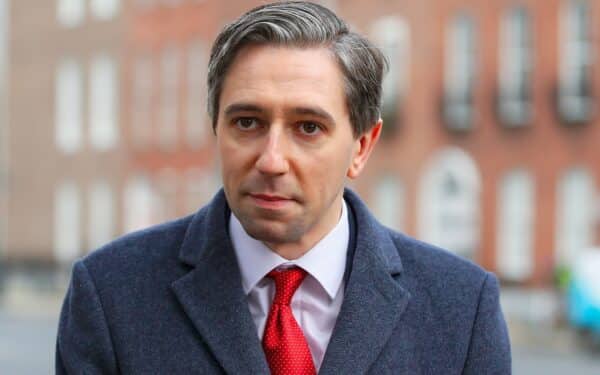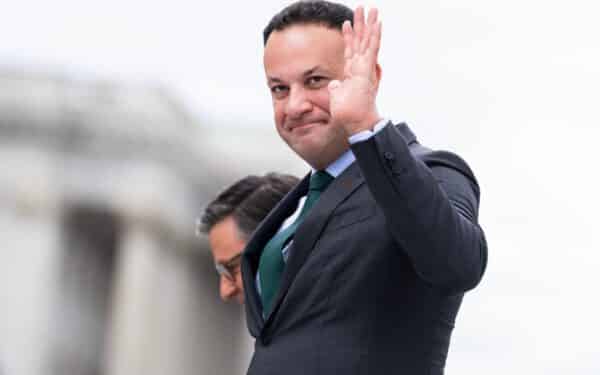Those who think that Theresa May’s Mansion House speech provided the outline of a pragmatic settlement of the Brexit negotiations, with honour accruing to both sides, are mistaken. At the very least, they exaggerate the likelihood of a mutually acceptable deal. All the Prime Minister did was make an offer. In doing so, she rejected the draft treaty put forward just two days earlier, on behalf of the 27, by the EU’s chief negotiator Michel Barnier.
It may be that, in response to her more moderate tone, Barnier will come back with a slightly amended offer of his own. He may make a concession here and a concession there, tempting the British with a modest upgrade of a Canada-style trade agreement. But 90 per cent of his original proposition will stand, and the real question is, can Mrs May accept what will be put before her by Europe or will she walk away?
No single issue is more critical than that of the Irish border. I have said it before and I will say it again, the Government was criminally remiss not to have foreseen the importance of Ireland to the success of the negotiations. There can only be one explanation for the scale of the neglect: ministers thought of Dublin much as they think of Edinburgh, Cardiff and Belfast – as a thorn in their flesh but not central to the narrative.
Well, now they know. The Republic is a free and independent state and a member in good standing of the European Union. The Taoiseach, Leo Varadkar, carries more weight in Brussels than Theresa May, who, by definition, as the head of a state negotiating its departure, has given up her right to determine the course of events.
When the PM let slip in the Commons on Monday that the border arrangements between the U.S. and Canada might point the way forward, even her supporters blanched. America’s frontier with its northern neighbour might be a far cry from the “impenetrable” barrier that President Trump proposes for the border with Mexico, but it remains a clear statement, complete with lines of traffic, customs booths, surveillance cameras and armed officers, that you are moving from one national jurisdiction to another. If such infrastructure is even close to what Mrs May envisiages for Ireland, then she might as well declare No deal tomorrrow and be done with it.
Later this week, following discussions with representatives of Sinn Fein and the DUP, Barnier is expected to reveal his formal response to Mrs May’s speech. While – as I say – he may choose to adopt more emollient language than in the recent past and perhaps offer one or two sweeteners, he will, in essence, prescribe the same bitter pill that Britain thus far has been so reluctant to swallow.
He will point out, on the Irish question, that nothing – absolutely nothing – has been forthcoming from the British side that advances the cause of an open and frictionless border. He will remind Mrs May and her team that if they cannot come up with an alternative solution, then, as part of its divorce package agreed in December, Britain is committed either to remain inside the Customs Union or else, failing that, to fully align Northern Ireland with the Republic in terms of tariffs and trade.
Given that London has formally rejected any possibility that the UK will stay inside the Customs Union, that only leaves the possibility of the island of Ireland becoming a “single regulatory area” within the Customs Union, OR of Britain walking away from the talks and dealing with the ensuing chaos as the sole responsible power.
There are, as we know, those on the Leave side who regard the latter as the most desirable outcome. A clean break, they say, may present problems in the short term, but over time Britain would not only recover lost ground, but prosper as never before. Why this should be the case is never made clear.
There are also those who think, even if they could not say it aloud, that it is insufferable and demeaning that Britain’s future should depend on the resolution of a feud between the peoples of a former colony with a combined population not much larger than that of Yorkshire. If the Irish want to revisit the Troubles and slug it out for another 30 years, let them is the secret, unspoken wisdom of hardline Brexiteers.
Never mind that Britain created the Irish problem and continues to assert its sovereignty over Northern Ireland. Forget the fact that with that assertion comes the responsibility to act. What matters is that England should be released from bondage.
That, of course, is not the Government position. So I am bound to ask: what do the Tories propose and how will it work? Drones in the sky, trusted trader schemes and HMRC turning a blind eye to smuggling do not add up to a solution – certainly not one acceptable to Dublin or Brussels. Just on a practical level, the drones would be instant targets, as would any customs officers who sought, for any reason, to interrupt the flow of people and goods.
Beyond the border question there remains the larger issue of EU market access, which, from the May perspective, could be resolved quite easily if only Brussels would see sense and give Britain everything it wants. The trouble is, that’s not going to happen.
Do Leavers really believe that the 27, with Angela Merkel back in the ring, are about to cave in to the eternal patisserie faction? Do they imagine that the concerns of German carmakers or disquiet in the East Bloc and Italy over Third World migration will turn the institutional tide in Britain’s favour? If so, they have another thing coming.
Plan A (remaining in the Single Market and Customs Union) has been rejected. Plan B (Canada+ with special status for Northern Ireland) is going the same way. Is there a Plan C, or are we about to hit the buffers?




